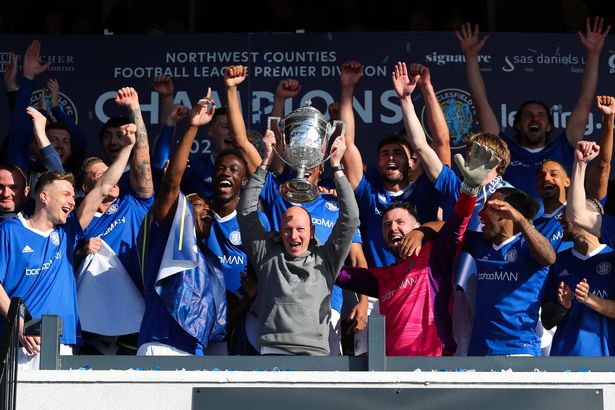- Home
- News
- What’s On
- Activities for Children
- Arts & Crafts
- Autos and Bikes
- Business events
- Car Boot & Auctions
- Charity events
- Churches & Religious
- Comedy
- Dance
- Days out & Local interest
- Education
- Exhibition
- Film
- Gardening & Horticulture
- Health
- Markets & Fairs
- Music
- Nature & Environment
- Spiritual
- Sport
- Talks and Discussions
- Theatre and Drama
- Business
- Local Information
- Jobs
- Deaths
- Charity events
- Contact Us
Robbie Savage explains rise in ticket prices

Image: Lewis Storey/Getty Images
The cost of living crisis has hit every household – and football has not escaped the ravages of inflation.
At Macclesfield, we have taken some stick for raising our ticket prices next season, but our experience is no different to the financial pressures being felt by clubs up and down the country. We could be celebrating a second consecutive promotion as champions if results go our way this weekend, so I hope any celebrations are not tempered by a backlash over our reluctant price hikes.

But to give you an idea of how much it costs to run a club, let me start by revealing that owner Rob Smethurst has put £4 million of his own money into the project since we bought the shell of a football club in October 2020.
Neither of us – Rob as owner, me as director of football – takes a penny as a salary. And it’s an uncomfortable truth that many clubs would not survive without the generosity of their owners. But we have been caught napping by the running costs, and some of these figures may help to explain why clubs below Premier League or Championship level struggle to make ends meet.
This year, following the massive rise in energy costs, our combined gas and electricity bills have gone up from £4,000 a month to £20,000 a month – a 500 per cent increase.
The big worry is that is clubs who only just survived the pandemic will now go to the wall on the back of those crippling energy bills. By the time we have spent £8,000 on stewarding, £4,000 on police, paid 33 bar staff, medical staff on standby and other ancillary bills, it costs us £25,000 per match at the Leasing.com stadium.
Whether we are playing Trafford in the Northern Premier League West or Manchester United, the operating costs of running our ground is the same.
In one respect, we are lucky – we attract gates of between 3,500 to 4,000 in a league where most of out competitors get crowds of only a few hundred.
But our stadium is effectively an EFL-standard facility in the Northern Premier League West, and we have to obtain a safety certificate from the council to run it as such.
I can understand the feedback about ticket prices: Next season, we are increasing admission from £12 to £17, and season tickets from £180 to £299, which works out at £14.23 per game.
The alternative would be to reduce the playing budget by half, use that money to peg back ticket prices, and instead of building a squad capable of challenging for a third successive promotion we could just tread water. But is that what the fans want? It’s a double-edged sword and there are no easy solutions.
If the gas suppliers get in touch to tell us our bill will come back down to last year’s levels, we can think again – but how many of your household bills ever come down significantly?
Three years ago, there was no football club in Macclesfield – now we are facing kick-back because of our ticket prices. But this is the reality of football club economics up and down the country.
And the truth is that it is no longer enough just to be a millionaire to run a club with ambitions of reaching the National League or higher. You need to have a fortune running into tens of millions. If we have another promotion to celebrate between now and Easter, I hope frank discussions about ticket prices don’t spoil the party.

You must be logged in to post a comment Login